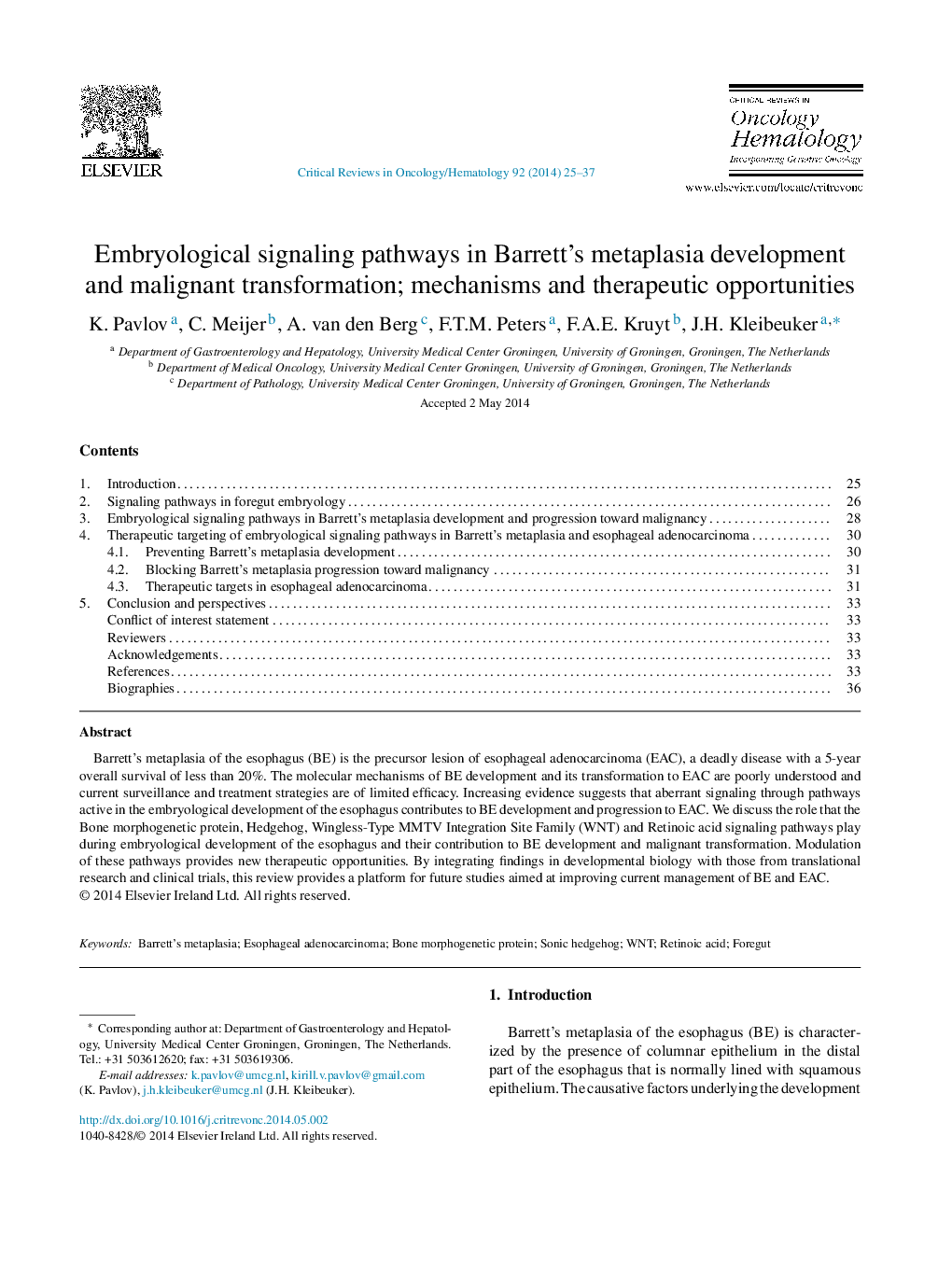| Article ID | Journal | Published Year | Pages | File Type |
|---|---|---|---|---|
| 3328739 | Critical Reviews in Oncology/Hematology | 2014 | 13 Pages |
Barrett's metaplasia of the esophagus (BE) is the precursor lesion of esophageal adenocarcinoma (EAC), a deadly disease with a 5-year overall survival of less than 20%. The molecular mechanisms of BE development and its transformation to EAC are poorly understood and current surveillance and treatment strategies are of limited efficacy. Increasing evidence suggests that aberrant signaling through pathways active in the embryological development of the esophagus contributes to BE development and progression to EAC. We discuss the role that the Bone morphogenetic protein, Hedgehog, Wingless-Type MMTV Integration Site Family (WNT) and Retinoic acid signaling pathways play during embryological development of the esophagus and their contribution to BE development and malignant transformation. Modulation of these pathways provides new therapeutic opportunities. By integrating findings in developmental biology with those from translational research and clinical trials, this review provides a platform for future studies aimed at improving current management of BE and EAC.
